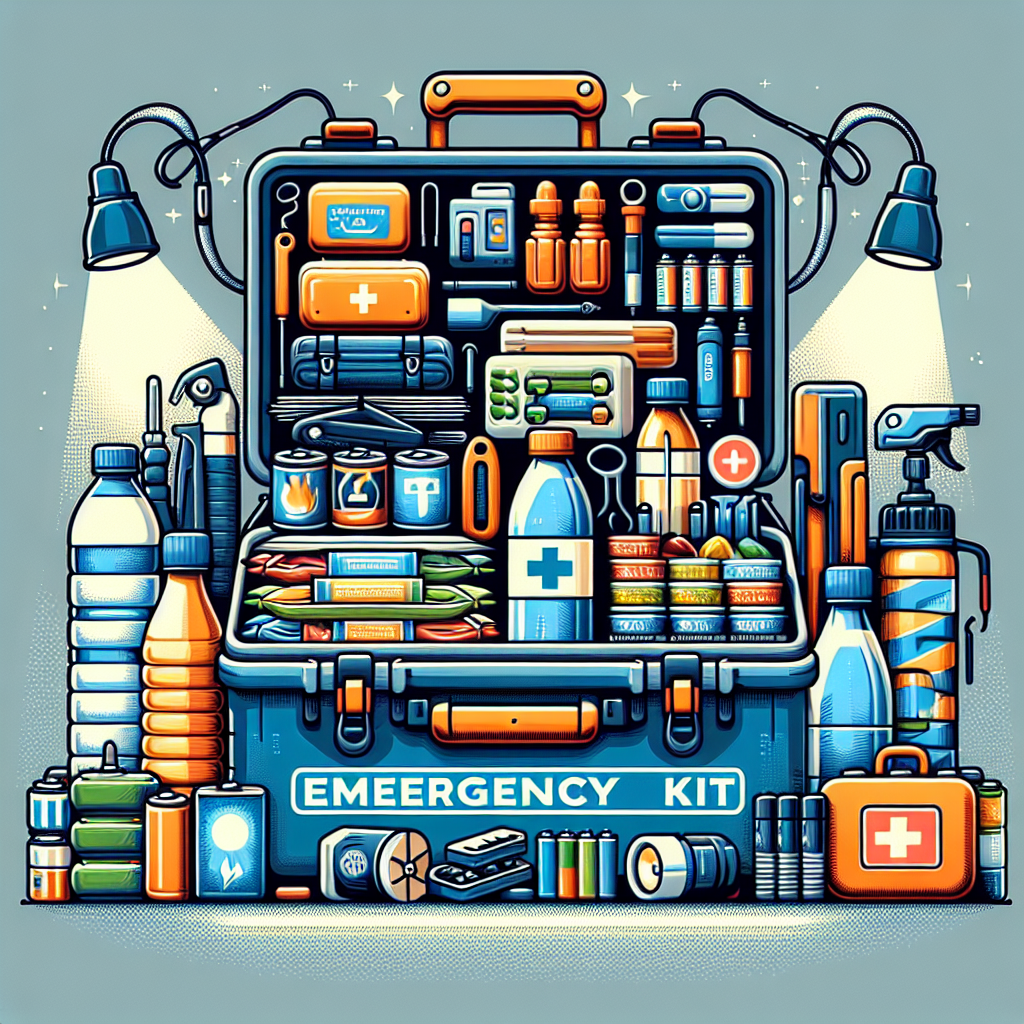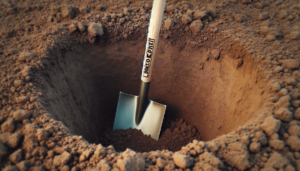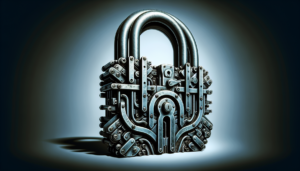
In the video “Preparedness NOW! Quick Tips For New Preppers” by Survival Dispatch, you’ll find a wealth of valuable information on being prepared. The video covers various tips, such as never letting your gas tank drop below 1/4 full to avoid fuel shortages, keeping a self-defense tool next to your bedside, loading your pants with everyday carry (EDC) items for quick response, wearing a neck knife for utility purposes, and emphasizing the importance of physical fitness. The content includes hashtags related to prepping and preparedness, and also provides links to the Survival Dispatch Store and website. Please note that the materials in the video are for informational and entertainment purposes only, and there may be affiliate partnerships with mentioned brands. The video stresses the importance of safety and proper training when handling firearms, while also clarifying that Survival Dispatch is not an FFL and does not sell firearms, parts, or magazines.
Tips for Being Prepared in Various Situations
Preparing for Natural Disasters
When it comes to natural disasters, being prepared can make a huge difference in ensuring your safety and well-being. Here are some tips to help you prepare:
-
Stay informed – Stay updated with local news and weather alerts to be aware of any potential threats or warnings in your area.
-
Create an emergency kit – Prepare a kit that includes essential items such as non-perishable food, water, flashlights, batteries, a first aid kit, and any necessary medications.
-
Have a communication plan – Establish a communication plan with your family or household members so that you can stay connected during an emergency. This can include identifying a meeting place, having emergency contact numbers, and establishing an out-of-area contact person.
-
Secure your home – Take steps to secure your home before a natural disaster strikes. This may include reinforcing windows, securing loose outdoor items, and having emergency shut-off valves for utilities.
Preparing for Power Outages
Power outages can occur unexpectedly and potentially last for an extended period of time. Here are some tips to help you prepare:
-
Have alternative lighting sources – In the event of a power outage, it’s important to have alternative lighting sources such as flashlights, lanterns, or battery-operated lights.
-
Stock up on non-perishable food – Make sure to have a supply of non-perishable food items that can be easily prepared without the need for electricity.
-
Keep your devices charged – Prioritize charging your electronic devices before a power outage occurs. Consider investing in portable power banks or solar chargers.
-
Invest in a generator – If power outages are common in your area, consider investing in a generator to provide backup power for essential appliances.
Preparing for Civil Unrest
Civil unrest can occur unexpectedly in various situations. While it’s impossible to predict when or where it may happen, being prepared can help ensure your safety. Here are some tips:
-
Stay informed – Keep up with the news and local updates to be aware of any potential civil unrest in your area.
-
Establish a safe space – Identify a secure location in your home where you can shelter in place if necessary.
-
Maintain a low profile – During times of civil unrest, it’s important to avoid drawing attention to yourself. Stay indoors when possible and avoid unnecessary travel.
-
Have emergency supplies – Stock up on essential items such as food, water, medications, and first aid supplies in case of prolonged unrest.
Preparing for Medical Emergencies
Medical emergencies can happen at any time, and being prepared can save lives. Here are some tips to help you be prepared for medical emergencies:
-
Learn basic first aid – Take a first aid course to learn basic skills that can be used in emergency situations.
-
Have a well-stocked first aid kit – Keep a well-equipped first aid kit at home, in your car, and at your workplace.
-
Know emergency contact numbers – Have emergency contact numbers easily accessible, including local hospitals, poison control, and emergency services.
-
Prepare an emergency medical information sheet – Keep a sheet with important medical information, such as allergies, medications, and pre-existing conditions, in case of emergencies.
Tips for Fuel Preparedness
Keep Your Fuel Tank Filled at Least 1/4 Full
Maintaining a sufficient fuel level in your vehicle can be crucial, especially during fuel shortages or emergencies. By making it a habit to keep your fuel tank at least 1/4 full, you will ensure you have enough fuel to respond to unexpected situations.
Store Extra Fuel Safely
In some emergency situations, fuel may become scarce or unavailable. Consider storing extra fuel in a safe and appropriate manner to prepare for such scenarios. Use approved fuel containers and store them in a well-ventilated area away from sources of heat or ignition.
Rotate Stored Fuel Regularly
If you choose to store extra fuel, it is important to rotate it regularly to maintain its quality and usability. Fuel can deteriorate over time, so make sure to use and replace stored fuel periodically to ensure its reliability when needed.
Tips for Emergency Tools
Have a Hammer and Spare Nails Next to Your Bedside
In case of emergencies such as a break-in or a need to evacuate quickly, having a hammer and spare nails next to your bedside can be invaluable. These tools can help you secure doors or windows, or even create makeshift solutions in urgent situations.
Consider Investing in a Bedside Safe with Quick Fingerprint Readers
To keep your valuable possessions safe and accessible during emergencies, consider investing in a bedside safe with quick fingerprint readers. This will ensure that you can quickly access important documents, cash, or other items without compromising their security.
Carry a Multi-tool for Versatility
Carrying a multi-tool can provide you with a range of essential tools in a compact and versatile package. From cutting wires to opening cans, having a multi-tool can come in handy during emergencies or everyday situations.
Tips for Everyday Carry (EDC)
Keep Your Pants Loaded with EDC Items
EDC, or everyday carry, refers to the items you carry with you on a daily basis for convenience and preparedness. One tip is to keep your pants loaded with EDC items, including a wallet, pocket knife, flashlight, and any other essentials that may be useful in emergency situations.
Choose High-quality and Reliable EDC Gear
When selecting EDC gear, prioritize high-quality and reliable items that can withstand everyday use and potentially assist you in emergency situations. Consider factors such as durability, functionality, and ease of use when choosing your EDC gear.
Review and Update Your EDC Kit Periodically
Regularly review and update your EDC kit to ensure that it remains relevant to your needs and preferences. Adjust your items based on changes in your lifestyle or any new tools or technologies that may enhance your preparedness.
Tips for Self-defense
Always Have a Self-defense Tool Next to Your Bedside
In situations where personal safety is threatened, having a self-defense tool next to your bedside can provide you with a sense of security and peace of mind. Choose a tool that you are comfortable with and that aligns with local laws and regulations.
Consider Home Security Measures
Enhance your home security by investing in measures such as locks, alarms, or security cameras. Conduct a home security assessment to identify potential vulnerabilities and take necessary steps to strengthen your defenses.
Learn Proper Self-defense Techniques
Enrolling in self-defense classes can equip you with essential skills and techniques to protect yourself and others during threatening situations. Learning proper self-defense techniques can boost your confidence and ability to respond effectively when faced with danger.
Tips for Personal Safety
Carry a Neck Knife for Easy Access and Utility Purposes
A neck knife can be a compact and convenient tool to carry for personal safety. With easy access and utility purposes, a neck knife can provide you with a reliable cutting tool in emergency situations or for everyday use.
Prioritize Situational Awareness
Maintaining situational awareness means being attentive to your surroundings and potential threats. Stay alert, trust your instincts, and avoid potentially dangerous situations whenever possible.
Take Self-defense Classes
Enrolling in self-defense classes can provide you with valuable skills and knowledge to protect yourself and others. Learning techniques for self-defense and conflict resolution can empower you to handle unpredictable situations with confidence.
Tips for Physical Fitness
Focus on Gaining and Maintaining Physical Fitness
Physical fitness plays a crucial role in your overall preparedness. By focusing on gaining and maintaining physical fitness, you can enhance your endurance, strength, and flexibility, making it easier to handle physical demands during emergencies.
Stay Active and Engage in Regular Exercise
Engage in regular physical activity to stay active and maintain your fitness level. This can include activities such as walking, jogging, cycling, swimming, or participating in sports or fitness classes.
Train for Stamina, Strength, and Flexibility
Incorporate exercises and training regimens that target stamina, strength, and flexibility. This can involve activities such as cardio workouts, weightlifting, stretching, and practicing yoga or Pilates. Consult with a fitness professional to create a personalized training plan based on your fitness goals and abilities.
Importance of Safety and Training
Handle Firearms Safely with Proper Training
If you choose to own and handle firearms, it is essential to prioritize safety and receive proper training. Enroll in firearms safety courses and familiarize yourself with safe handling procedures to minimize the risk of accidents.
Emphasize the Importance of Responsible Firearm Use
Promote responsible firearm use by educating yourself and others about the importance of following local laws and regulations. Encourage responsible storage and handling practices to ensure the safety of yourself and those around you.
Promote Safe Storage of Firearms and Ammunition
Properly storing firearms and ammunition is crucial to prevent unauthorized access and accidents. Invest in secure gun safes or lockboxes and follow recommended storage practices to keep firearms and ammunition out of the wrong hands.
Tips for Children’s Safety
Educate Children on the Safe Use of Tools
Teaching children about the safe use of tools can help them develop important skills while keeping them safe. Set clear guidelines and supervise their use of tools to ensure their safety and prevent accidents.
Teach Children about Emergency Procedures
Educate children about emergency procedures, such as what to do during a fire, natural disaster, or other emergency situations. Teach them how to call emergency services and reinforce the importance of following instructions.
Ensure Children Understand the Importance of Preparedness
Instill in children a sense of the importance of being prepared. Teach them about the value of having emergency kits, knowing basic first aid, and staying informed about potential risks. Encourage active participation in emergency drills or preparedness activities.
Conclusion
Being prepared is essential in today’s unpredictable world. By following these tips and incorporating them into your lifestyle, you can enhance your preparedness skills and ensure your safety and the safety of those around you. Remember to continuously educate yourself, adapt to new situations, and be proactive in building your preparedness skills. Stay prepared and stay safe!





